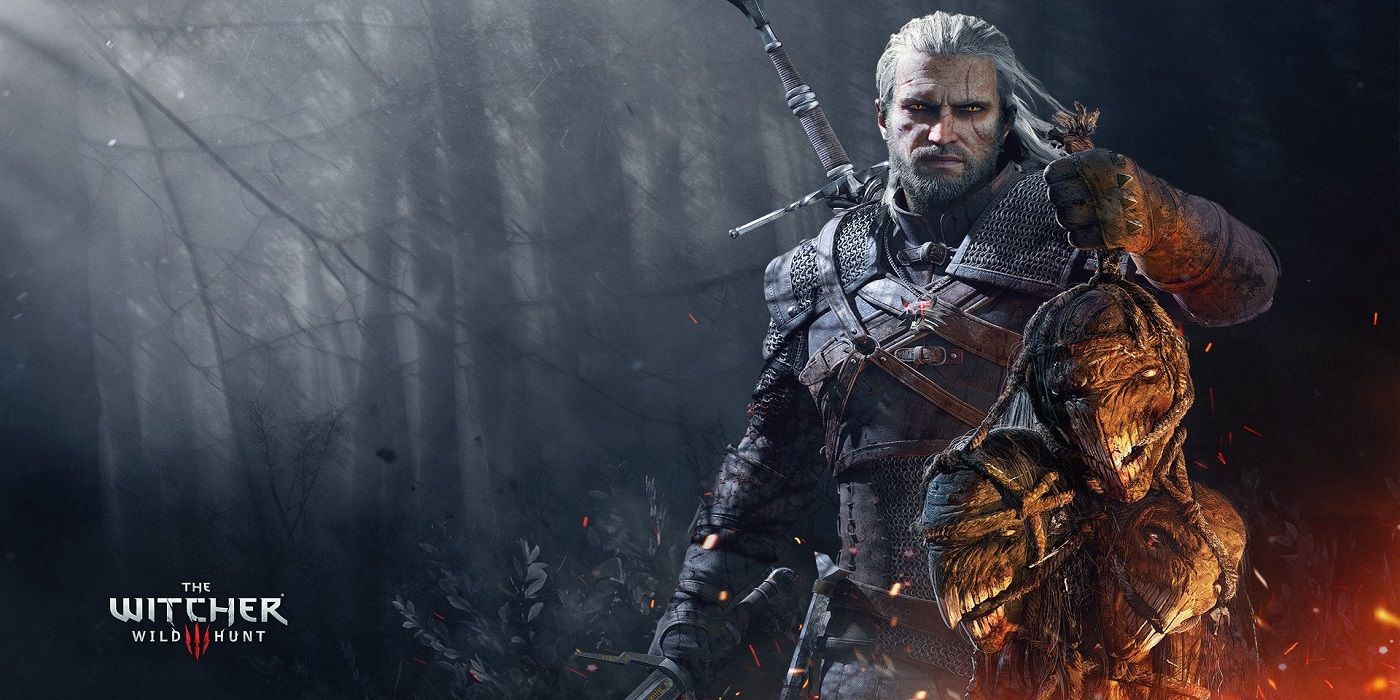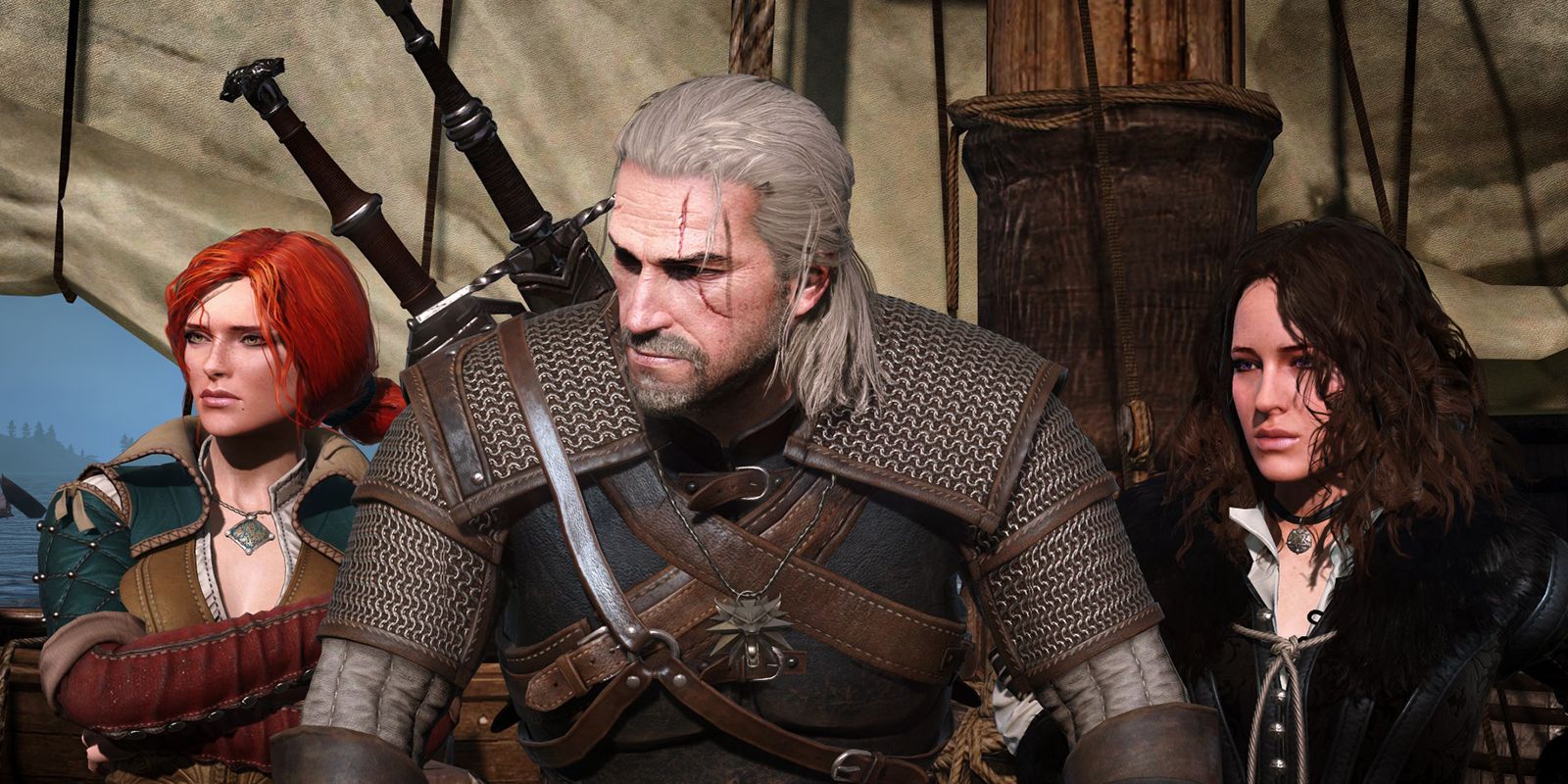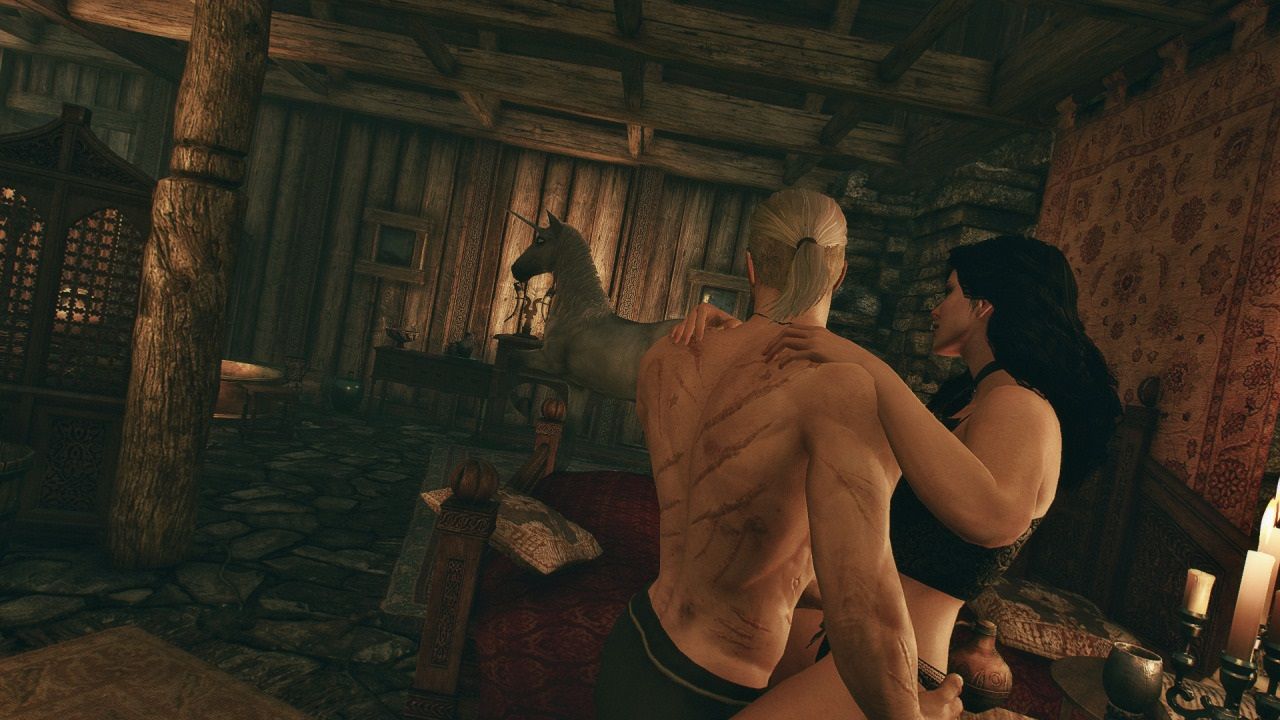Dragon Age 4 and Mass Effect 5 Should Look to The Witcher 3 in One Big Way

With Avowed and Cyberpunk 2077 already some of the most hotly anticipated games for the next-gen of consoles, many fans are wondering how the RPG genre will develop beyond graphical improvements for the next generation. BioWare has announced that it is working on Dragon Age 4 and Mass Effect 5, but after Mass Effect: Andromeda’s disappointing reception, the developer needs to make sure its next RPG has a tight compelling story that feels like a step forward from the previous games. To do this, BioWare should look at CD Projekt Red's The Witcher 3.
The Witcher 3 is a very different kind of RPG, mechanically speaking, but BioWare should look at the way CD Projekt Red handled the romance portion of its storytelling as the model for its upcoming games. It is through this that BioWare’s new games will feel like they are progressing in their capacity to tell engaging stories, not just in the hardware they’re developed for.

Dragon Age 4 and Mass Effect 5 should look to The Witcher 3 as the model for well-developed interpersonal relationships in RPGs. BioWare’s games have a history of having romances that can be so easily triggered that some players don’t even know that they have entered into them. In Dragon Age: Origins, the player can easily find themselves accused of two-timing simply for exploring non-romantic dialog options with their companions.
Inquisition has a similar problem at times, although not as severe, and while the original Mass Effect trilogy generally avoids this in its romances when they are developed across multiple games, the one-off romances like Steve Cortez in Mass Effect 3 are woefully underdeveloped even compared to the less central romances in The Witcher. Considering the fact that both Mass Effect 5 and Dragon Age 4 will likely introduce new player protagonists, this could be a point of concern for fans of the series.
There are a few reasons some of BioWare’s romances fall flat. First, many of the romance options are companion characters, and the player improves their romantic prospects with them either through gifts or by taking them along on missions where they choose dialog options which align with that companion’s personality. Neither of these routes emulates a genuine romantic connection developing in the story, or makes the romance a story in and of itself. This can make these romances feel like they develop primarily in the background despite being some of the most important relationships in the games.
The Witcher 3’s romances are more deftly woven into the overarching narrative. Instead of presenting themselves as optional additions to the story that don’t have much to do with the main missions, romantic options like Yennefer and Triss are made central to the narrative at key moments, and their advances, rejected or embraced, feel like part of the main plot.

The important choices in The Witcher 3’s romances are tied to key character moments, rather than the romances being triggered because the player chooses dialog options which align with the character’s personality. Yen’s romance, for example, isn’t triggered by choosing the right dialog in other quests, but is developed through important secondary missions like "The Last Wish" where the romance is centered in the story. In the quest, Geralt has to free the Djinn the pair are hunting in a romantic gesture and then confess his feelings in order for the romance to progress.
Similarly, a key decision on the romantic track with Triss Merigold is integrated into the main plot during the quest "A Matter of Life and Death." Even if the player chooses someone else, rejecting Triss in this moment is an emotional part of the story because of her feelings for Geralt. In part, this works because of the characters' relationships in previous games and in the books.
Nonetheless, having a character fall for the protagonist in the main story feels more organic than some BioWare romances which the player generally has to pursue themself. Even if they didn't mean to initiate the romance, the other party usually still perceives the attraction as mutual. In a BioWare game, rejection is often only made an option if the player romances multiple characters and has to choose.
In The Witcher 3, romancing both Yen and Triss will cause them to team up and humiliate Geralt later in the game by leaving him tied to a bed. The Witcher's route feels more genuine but also includes some unexpected twists and turns that make the romances feel like interesting stories in their own rights rather than merely the romantic aspect of the game.
In BioWare’s games, companion characters often have their own loyalty missions, but while completing these often unlocks new romantic dialog options back at camp or on The Normandy, the romance is rarely woven into those missions themselves. As a result, the romantic aspects of these relationships can feel supplementary, whereas The Witcher’s romances feel more like an organic and necessary aspect of Geralt’s story.

In part, The Witcher's romances succeed because Geralt is a character who exists more independently of the player than the protagonist in BioWare's games, allowing the romantic stories to be more character-driven with Geralt's personality in mind. In a BioWare game, doing this could make the player feel like their character's personality is being prescribed to them. Nonetheless, the fact that The Witcher 3's romances work even for the many players who have not read the Witcher books or engaged in the story outside of the third game speaks volumes.
If BioWare’s upcoming games are going to feel like the developer is taking RPGs into the next-generation, it will need to consider The Witcher’s clever integration of its relationships into other aspects of the plot. The RPGs which will define the next generation will likely be those which can make their many options and missions feel like a single continuous developing narrative.
The Witcher 3: Wild Hunt is available now on PC, PS4, Switch, and Xbox One

Post a Comment